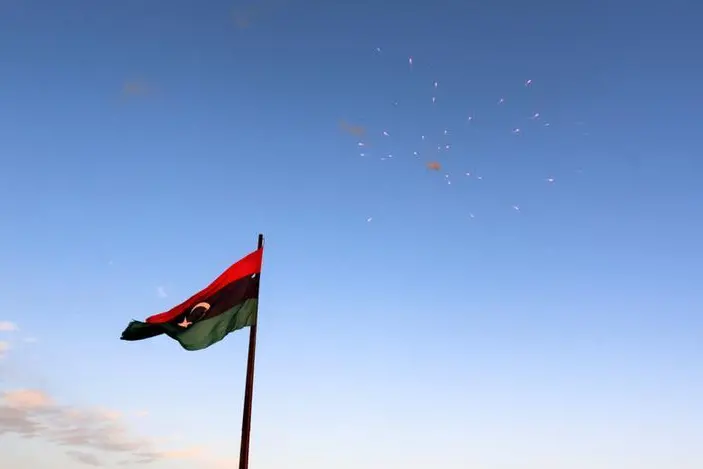PHOTO
Elections in Libya that were scheduled for Dec. 24 last year could not be held for a number of reasons. The most important one was that the High National Election Commission could not publish the final list of candidates because militias had threatened to stop the electoral process if it did so.
In September, the Tobruk-based House of Representatives had withdrawn its support from the Government of National Unity of Prime Minister Abdul Hamid Dbeibeh. According to the UN-sponsored roadmap, if he wanted to stand in the elections, he had to resign three months before they took place. He still has not done so.
Dbeibeh last week stated that his government would remain in office until the elections, which are now scheduled for June this year. In other words, he extended his own mandate for almost half a year. Parliament Speaker Aguila Saleh opposed Dbeibeh’s decision and said that a new prime minister would be voted in on Wednesday.
These are the signs of an impending earthquake in Libya’s domestic politics.
There have also been changes on the side of the UN. Jan Kubis, the special envoy for Libya, resigned his post in November, probably at Washington’s instigation, and was replaced by US diplomat Stephanie Turco Williams. The White House does not want to lose control of the unfolding of events in Libya.
After it became clear that the elections could not be held on the scheduled date, the chairman of the High National Election Commission said they may not be held for another six to eight months.
In light of the divided nature of the country, it has become all the more difficult to make forecasts about the outcome of the political process. Even though Dbeibeh claims he is prime minister, Saleh believes that Dbeibeh’s mandate expired on Dec. 24. Therefore, he cannot act as PM.
Adding to the complications, Saif Al-Islam Qaddafi, a man wanted by the International Criminal Court, last year emerged as a contender in the elections. Khalifa Haftar is another strong candidate. These two candidates have the potential to have a fundamental effect on the unfolding of the democratic process in Libya.
If and when the elections are held, the next issue to be addressed will be the withdrawal of foreign forces from Libya. A more or less satisfactory framework already exists for this task. A team called the 5+5 Libyan Joint Military Commission was created under the auspices of the UN Support Mission in Libya. This commission agreed in October last year to urge the withdrawal of foreign military forces from Libya. This decision was in line with the ceasefire agreement signed on Oct. 23, 2020, and with UN Security Council resolutions 2570 and 2571. It was also in line with the decisions adopted at last June’s Berlin Conference. The plan was submitted to the Libya Stabilization Conference held in Tripoli in October last year. It was an important step toward Libyan ownership of the process, but what matters most is the implementation. Almost every major stakeholder in Libya has its own interpretation of the decisions.
Despite the genuine wish of the UN to introduce a Libyan-owned electoral process, the countries that have important stakes will not easily withdraw their hands from this country.
Russia will not withdraw its Wagner Group mercenaries unless a solution meets its own expectations. Egypt is very much interested in the withdrawal of the foreign forces because it has a long common border with Libya. France and Italy have their own plans. And the US has already demonstrated through Williams that it means business.
Turkey also has its own expectations. So far, it has only been dealing with the Government of National Accord based in Tripoli. It now understands that the Libyan chessboard is more complicated than it first thought. It has contacted more local players in the country and foreign actors such as Egypt and the UAE. Ankara has already expressed its view that the Turkish military presence in Libya was based on an agreement signed with the legitimate Libyan government — though this agreement has yet to be ratified by the Tobruk-based parliament.
Despite close contact between Turkey and Russia, Ankara recently made a surprise statement saying: “Turkey will be working together with the US in Libya.” We will see in due course what exactly this means.
Last but not least, the oil companies will perhaps play a more assertive role during the election process. Their methods may prove to be even more efficient than those of the Libyan politicians and foreign countries.
- Yasar Yakis is a former foreign minister of Turkey and founding member of the ruling AK Party. Twitter: @yakis_yasar
Copyright: Arab News © 2022 All rights reserved. Provided by SyndiGate Media Inc. (Syndigate.info).





















